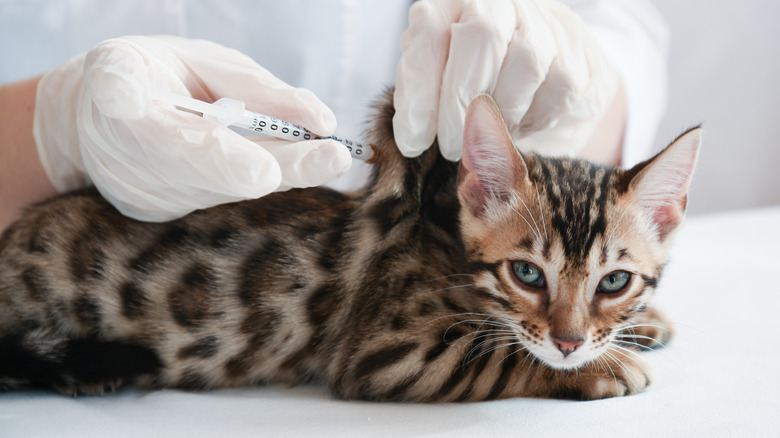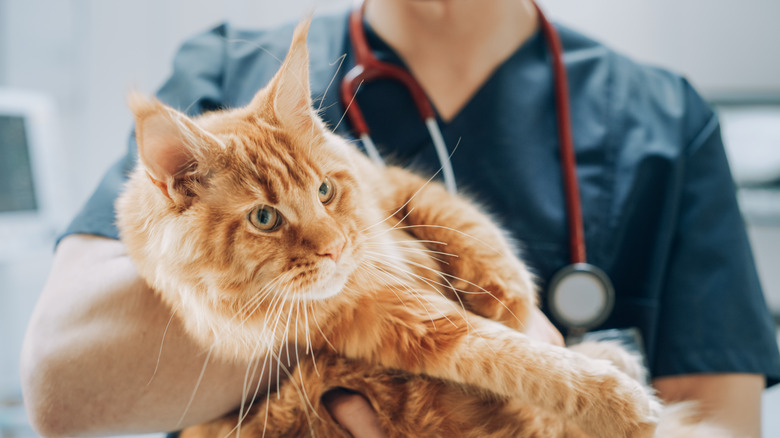The Most Common Side Effects Of A Rabies Vaccination In Cats
Throughout most of the U.S., it's mandatory for cats to have a rabies vaccine. There's a good reason for this. Rabies has no cure, and when an unvaccinated cat contracts the disease, there's no option but euthanasia. Having your cat vaccinated against rabies is also required if you plan to travel or fly with your cat on a plane. This is because rabies is a zoonotic disease — one that can affect people as well as other animals. It's vital for all cats — even ones who stay indoors — to receive a rabies vaccine.
However, as is the case with any immunization, your cat may experience some minor side effects after receiving their rabies shot. Thankfully, the chances of this happening are rare. According to a 2005 study by the Journal of the American Veterinary Medical Association of over 2,500 cats, fewer than 0.5% had an adverse reaction to vaccines, including rabies. But, even with the low risk, it's wise to be aware of even the mild side effects so you can provide your cat with the best post-vaccine care.
What to expect after your cat's rabies vaccine
The good news is the most common rabies vaccine side effect is mild soreness at the injection site. However, if your cat is more sensitive, they may show signs of lethargy, a decrease in appetite, and swelling. These typically show up a few hours after the injection and dissipate within a few days. If you want to make the experience more comfortable for your cat, give them a comfortable space to rest, and try not to pet the site where they received the shot.
There are some more serious side effects to keep an eye out for, such as an allergic reaction. This looks like hives, severe swelling, facial swelling, or pain and lethargy. If you do notice signs of a severe allergic reaction, seek veterinary care immediately, even if it's been several days since the shot. In extremely rare cases, vaccines can contribute to tumor called a sarcoma. Sometimes, these may appear up to several years after the vaccine was given, so be sure to take them in for evaluation if you notice any unusual lumps on their body.
Nevertheless, these types of vaccine side effects in cats are still quite rare. Per the aforementioned study from the Journal of the American Veterinary Medical Association, reactions are more likely to occur when cats receive multiple vaccines at once. With that in mind, it's a good idea to have your cat receive their vaccines on different days to be on the safe side. Your vet can also administer an antihistamine or steroid injection before the vaccine to reduce the chances of a reaction. The rabies vaccine is usually administered once every three years, though some vaccines can be given annually. If your cat has a history of experiencing nay kind of vaccine reaction, your vet may recommend sticking with the 3-year plan.

